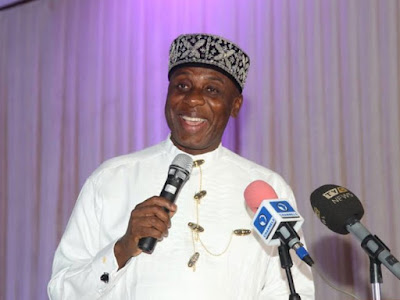The appointment of Rotimi Amaechi as the Transportation Minister on November 11, 2015 was received with mixed feelings in the sector.
It was expected. Many had a fixed impression about him as no less an eel, given his role in the recent political theatrics in Rivers State. Some felt he would make an errant minister because he had no knowledge or expertise in transportation. Others, however, believed he could make a difference because of his personality, which is underscored by a simple expression- “quitters don’t win”. Amaechi never quits, and he does not fear bullies.
In his usual loquacious innocence, Amaechi, during his maiden visit to the parastatals under his ministry in Lagos, said, “I am not a transport expert.”
As expected, he has had a couple of trials and errors in the process of his learning, and he has even confessed at a point that he would rather remain a governor than being a minister, on a scale of choice. To him, ministerial responsibilities come with forests of bureaucratic bugs. This, notwithstanding, Amaechi is very determined to have some key deliverables to mark his one year in office come November, this year.
He got an endorsement for performance from President Buhari recently, during the commissioning of the Abuja-Kaduna train services on Nigeria’s first-ever standard gauge rail track.
“The Minister of Transportation, Rotimi Amaechi and his team have put great efforts in the last few months to ensure the successful completion of this project under this Administration,” Buhari noted.
That is from the rail subsector, and he remains humble enough to give credit to the previous administration as the forerunners of the project.
In the maritime sector, Amaechi has embarked on a mission to re-launch Nigeria into the mainstream of shipping business by insisting on the establishment of a national carrier. A steering committee has been constituted and it is made up of some critical stakeholders, and chaired by Barr. Hassan Bello, Executive Secretary and Chief Executive Officer, Nigerian Shippers’Council (NSC). It has made impressive impact, with a serious foreign partner in their kitty and volumes of potential cargoes waiting to be freighted by the emerging national carrier, expected before November, this year.
Amaechi is also determined to begin and sustain performance audit of the government agencies and terminals concessioned to private operators.
Before now, national Single Window Network platform in Nigeria was a subject of political chess game, while Ghana, Benin Republic and other neighbouring West African countries feasted on the vacuum to grow their economies. It took a mere briefing for Amaechi to see the inherent benefits, which include advanced cargo-tracking information opportunity, antidote to revenue leakage, cargo security, a check on capital flight, correct tonnage declaration, amongst others.
In Ghana, the integration of the Advanced Cargo Tracking Note (ACTN) with the Single Window Network platform is a perfect experience being midwifed and managed by the Ghana Shippers’ Authority (GSA).
In Nigeria, the Nigerian Shippers’ Council (NSC) has the mandate to implement the Cargo Tracking Note (CTN), as a unit of the national Single Window Network platform to widen the income net of the federal government.
At the last count, the Nigeria Liquefied Natural Gas (NLNG) has subscribed to the CTN platform, among other numerous clients, which include the shipping lines.
So far, the scheme, with a rejuvenated board of directors composed of credible Nigerians, as members of the consulting company, has generated well-over $1.8million (about N320millon) on partial test-run in less than a year. The Nigeria Customs Service (NCS), Manufacturers Association of Nigeria (MAN), freight forwarders, shippers’ associations, among other stakeholders, have come to embrace CTN as a key instrument of sanity in the international trade supply chain and trade facilitation.
The Minister on May 5, 2016 inaugurated the Bakassi deep sea port steering and delivery committee as a demonstration of the Federal Government’s desire to harness the vast potentials of the maritime sector for sustainable economic development.
However, one area where the minister’s attention is needed is the land transportation mode. Successive ministers in the past failed to give attention to this sub-sector with the highest concentration of the masses’ patronage. And a plausible reason for this neglect, which has never been debunked, is that it is not “a money spinner for the minister” like the other modes. The land mode is a symbol of chaos, and demands sanitisation. And there is certainly no federal agency in control, and perhaps, the only hope now rests with the passage of the National Transport Commission (NTC) bill into law. Efficient and effective inter-modal transport system will remain a wish and a dream if the various modal units are not fixed for active cohesion. A positive policy thrust in this area will have direct great impact on the lower and middle income classes, especially with the rail mode still battling to occupy its rightful place in the logistics chain in Nigeria.
As Amaechi continues his voyage, stakeholders are keen on keeping their dates and impressions with their discoveries, while some pray he turns out to be the long awaited “Change Agent” in the transport sector.
These footprints, obviously, do not suggest biting more than he can chew. The feed backs from the various committees leave the hope that the change will crystallize to transformation in no time.
THISDAY
